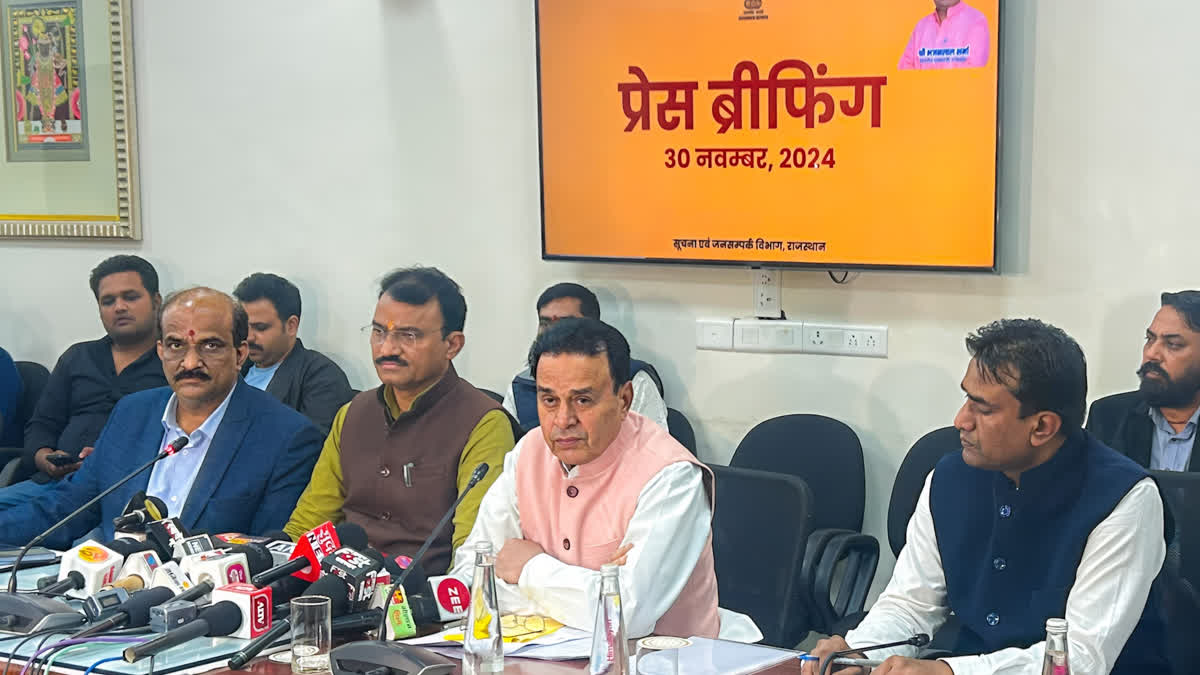Jaipur: Parliamentary Affairs Minister Jogaram Patel said on Saturday that the Bhajan Lal Sharma-led BJP government in Rajasthan is set to introduce a bill in the upcoming Assembly session to stop forceful religious conversions in the state.
The Rajasthan Prohibition of Unlawful Conversion of Religion Bill 2024 will be introduced in the upcoming Assembly session, with provisions for jail terms of up to 10 years for various violations. The bill was approved in a Cabinet meeting chaired by the CM.
What Does The Bill Propose: It proposes that if someone wants to convert to another religion, they will have to give an application to the district magistrate 60 days in advance.
Under the chairmanship of the CM, the first meeting of the Rajasthan Cabinet was held on Saturday, November 30, after the end of the code of conduct for the assembly by-election.
As many as nine new policies including a new MSME policy, one district one product policy, tourism unit policy, mines policy, M-Sand policy and investment promotion scheme, were approved in the Cabinet meeting to promote the industrial and economic development of the state.
Commenting on the bill, Patel said that the district magistrate will examine whether or not it is a forceful conversion. "If it is found that the conversion is not forced or under any temptation, then the applicant will be allowed to go ahead with it," he added.
अवैध धर्मांतरण को रोकने हेतु प्रतिबद्ध राजस्थान सरकार।
— Bhajanlal Sharma (@BhajanlalBjp) November 30, 2024
आज मुख्यमंत्री कार्यालय में आयोजित मंत्रिमंडल की बैठक में प्रलोभन अथवा कपटपूर्वक धर्मान्तरण के प्रयासों को रोकने के लिए 'द राजस्थान प्रोहिबिशन ऑफ अनलॉफुल कन्वर्जन ऑफ रिलीजन बिल-2024' विधानसभा में लाने का निर्णय किया गया।…
It is to be noted that Rajasthan became the sixth state to move such strict anti-conversion laws. BJP-ruled Uttar Pradesh, Gujarat, Madhya Pradesh and Uttarakhand have already brought in such laws. Himachal Pradesh too made its law against conversion more stringent in 2022 when the BJP was in power.
Speaking about punishments to be imposed under this law, if found guilty, Patel said that the bill has provisions of punishment in different categories, from one year to 10 years, with penalties for forceful conversion of an individual or in groups.
"If any person or institution does such an act, they will be given severe punishment. In this law, the crimes will be non-bailable and cognisable," he added.
Read More:



